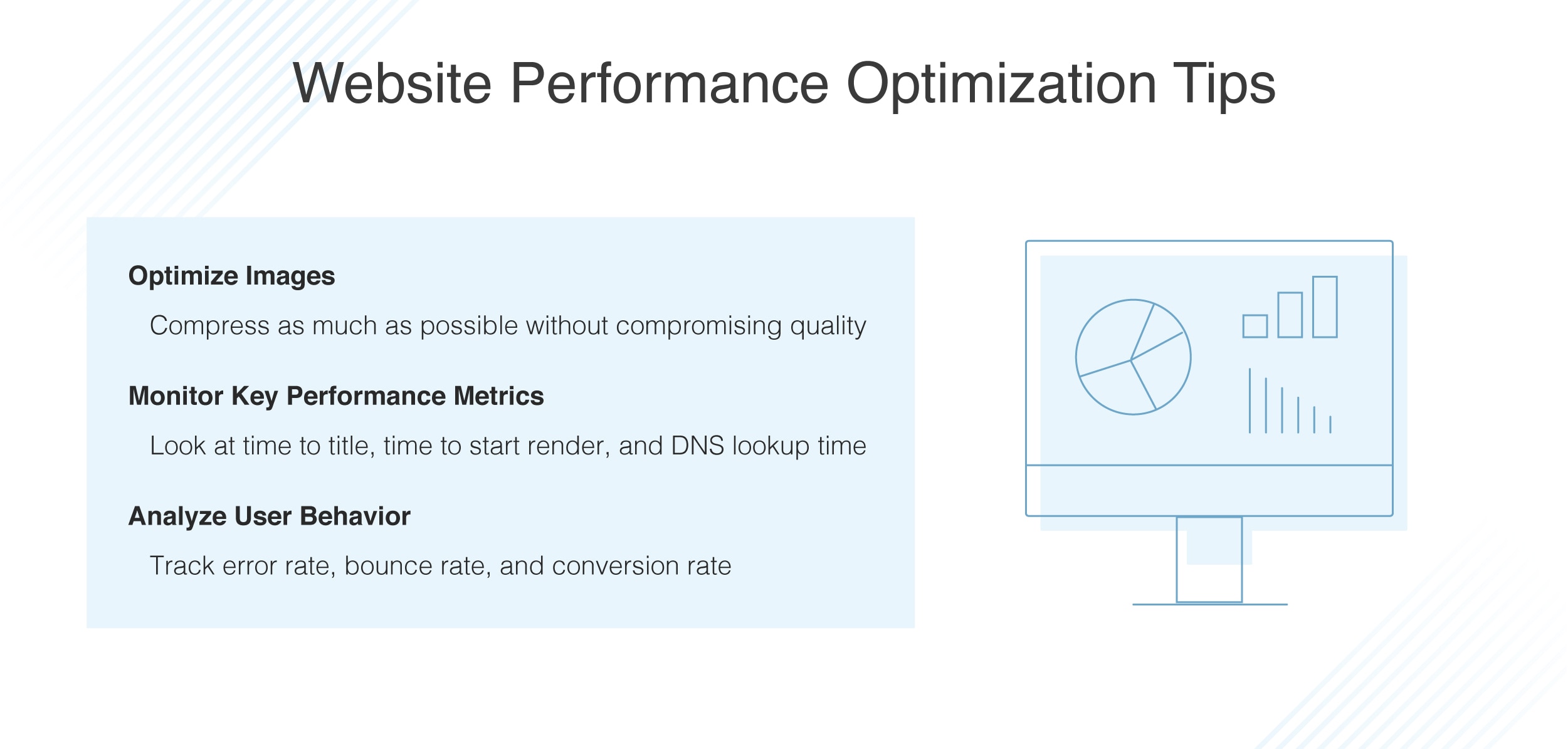Rise by Six: Your Daily Dose of Inspiration
Explore insights and stories that elevate your day.
Speed Demons: How to Make Your Website Zoom Past the Competition
Unleash lightning-fast website speed and leave your competition in the dust! Discover top tips for a blazing fast online presence.
The Top 10 Strategies to Boost Your Website's Loading Speed
In today’s fast-paced digital landscape, website loading speed is more crucial than ever. A slow-loading website not only frustrates visitors but can also significantly impact your search engine rankings. To help you improve this vital aspect of your site, we’ve compiled the top 10 strategies to boost your website's performance:
- Optimize Images: Ensure your images are compressed and properly sized to reduce load times.
- Minimize HTTP Requests: Limit the number of elements on your page to decrease loading time.
- Leverage Browser Caching: Enable caching to allow returning visitors to load your page faster.
- Use a Content Delivery Network (CDN): Distribute your content across various servers to improve load times for users worldwide.
- Minify CSS, JavaScript, and HTML: Remove unnecessary characters to streamline your code.
- Choose a Fast Hosting Provider: Select a reliable host that offers optimal speed and performance.
- Reduce Redirects: Each redirect creates additional HTTP requests, slowing down the loading process.
- Utilize Asynchronous Loading: Load scripts asynchronously to prevent them from blocking the rendering of your page.
- Remove Unused Plugins: Excess plugins can slow down your site, so deactivate and delete any that are not in use.
- Monitor Your Site’s Performance: Regularly test your website’s speed using tools to identify areas for improvement.

How Website Performance Affects Your SEO Rankings
Website performance plays a crucial role in determining your SEO rankings. Search engines, particularly Google, prioritize fast-loading websites because they enhance user experience. If your site takes too long to load, visitors are more likely to abandon it, leading to higher bounce rates which negatively impact your SEO rankings. Furthermore, search engines interpret slow performance as a sign of poor quality, thereby affecting your visibility on search results pages. Optimizing your website speed through techniques such as image compression, minifying CSS and JavaScript, and utilizing browser caching can significantly enhance performance and indirectly improve your SEO position.
In addition to speed, other aspects of website performance, such as mobile responsiveness and server response time, also play a vital role in your SEO strategy. With the increasing number of users accessing websites via mobile devices, Google has implemented a mobile-first indexing approach, which means that your site's mobile performance influences search rankings. Implementing responsive design and ensuring your server can handle high traffic loads will enhance both user satisfaction and your overall SEO performance. By regularly monitoring and improving your website's performance metrics, you can maintain a competitive edge in search engine results.
What Are the Essential Tools for Measuring Website Speed?
Measuring website speed is crucial for enhancing user experience and improving search engine rankings. To effectively assess your site's performance, several essential tools can help you gain valuable insights. First on the list is Google PageSpeed Insights, which analyzes the content of your web pages and provides suggestions for optimization. This tool breaks down performance metrics into actionable items, aiding in the identification of elements that may be slowing down your site. Additionally, GTmetrix offers a comprehensive overview of your website’s performance by assessing various factors, including page load times and overall speed scores.
Another important tool for measuring website speed is Pingdom, which allows you to test your site's performance from different geographical locations. This is particularly useful for understanding how your website performs for users in various regions. Moreover, WebPageTest provides a detailed analysis, offering visual representations of your site's loading behavior over time. By utilizing these tools, you can ensure a faster website, which is vital for retaining visitors and positively impacting your SEO efforts.